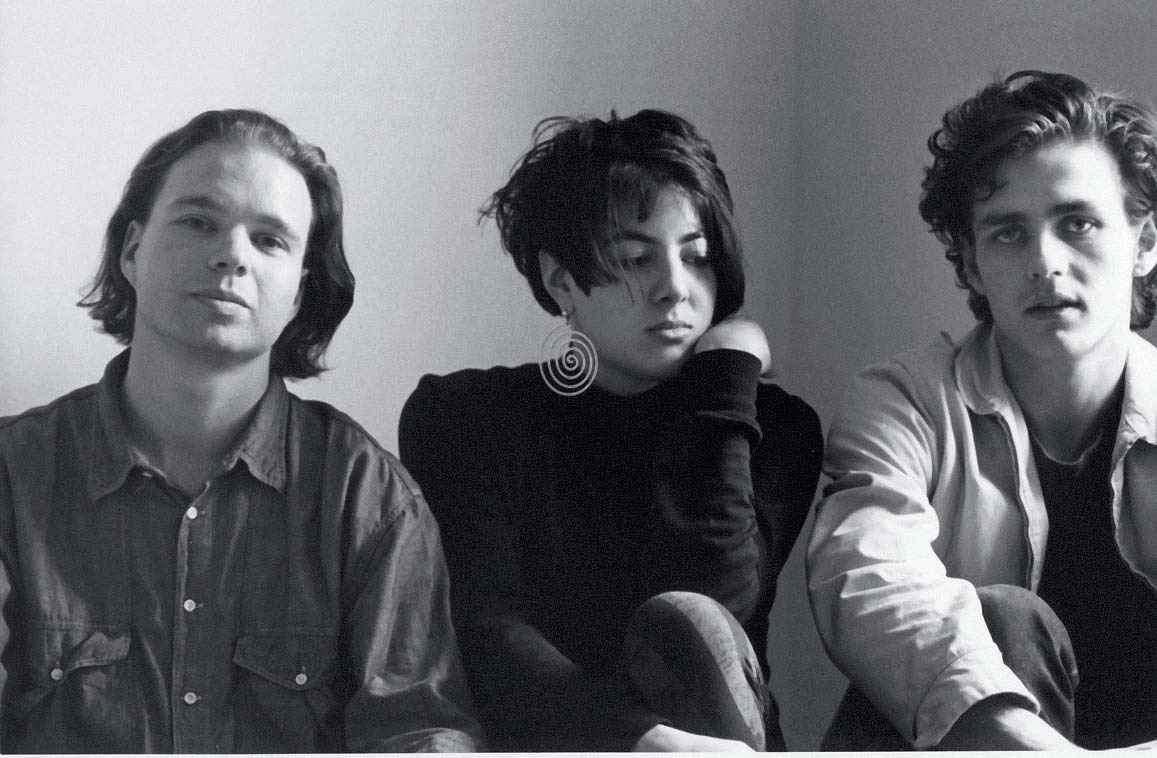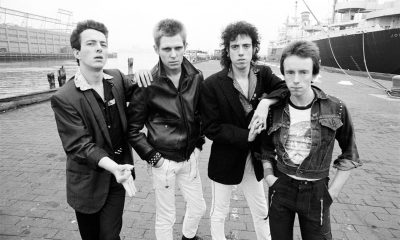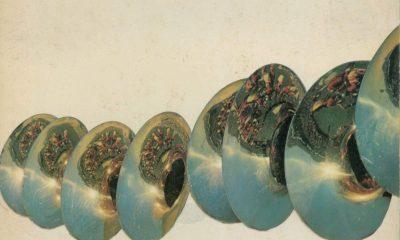Columns
Three Canon-Worthy Indie Bands

We tend to canonize indie music, identifying key influences in different genres and movements and holding succeeding works to the impeccable standards they set. Thanks to the internet, we can witness this process of canonization as it happens. For instance, 10 years after giving Neutral Milk Hotel’s seminal In The Aeroplane Over The Sea a respectable—though hardly legendary—score of 8.7, the team over at Pitchfork hailed the album as “an instant classic,” deserving not just of their effusive praise but also a revised critique. Indeed, if you check their website now, you’ll see that they’ve granted Aeroplane a perfect 10.
Of course, updating the canon is nothing new. Pet Sounds comes to mind: it was released in 1966 with tepid commercial success and an under-the-radar charm. Half a century later, it’s regarded as a preeminent American pop statement, what Rolling Stone has called an “evolutionary compositional masterpiece.”
But what of the overlooked bands that exert similar influence over contemporary pop-rock? It may seem impossible for an album or an artist to be at once overlooked and enormously influential, but several acts come to mind as the sonic forebears of some of today’s best new music. Three of them stand out, and all three deserve a greater legacy than they’ve been given by critics and audiences alike.
First, I’m hearing Galaxie 500 all over today’s musical landscape. Hailing from Boston, they released only three proper studio albums: 1988′s Today, 1989′s On Fire, and 1990′s This Is Our Music. Their catalogue may be limited, but it also adumbrates the ambient leanings of successful indie acts today.
Actually, I think their influence goes further back. For example, listen to Dean Wareham’s nasally delivery on “Tugboat,” the best-known track off Today, and tell me you don’t hear Jeff Mangum’s plaintive whines or Zach Condon’s passionate vocal imperfections.
Galaxie 500 seems to have reached a new peak of relevance this year, however, and I don’t just mean “shoegaze redux.” For one thing, arguably the year’s strongest release, dream pop duo Beach House’s aptly titled Teen Dream, revels in the same less-is-more songwriting mindset that Wareham and company used so effectively. Galaxie 500′s music is remarkable because it employs only the standard rock-band instruments (drums, guitars, bass) but gets these instruments to create a full, layered sound; listening to Beach House’s “10 Mile Stereo,” it’s impossible to ignore the rock-music-as-ambient-music influence.
Ambient folk singer Julian Lynch in many ways inhabits a musical land of his very own, but recognizable inspiration peeks through. “Interlude,” for example, finds him chanting in the uppermost registers of his voice—much like Wareham does on “Tell Me,” the second track off On Fire.
The artsy southern rockers of Deerhunter—whose Halcyon Digest was just recently released to universal acclaim—can also trace their influence back to Galaxie 500 with ethereal tracks like “Fountain Stairs” and “Sailing.” A whole host of other bands also continue Galaxie 500′s experiments in stretching out the barest of rock instrumentation, from the Yeah Yeah Yeahs (think of the piercing, monotonous guitar work on “Maps”) to Here We Go Magic and Cotton Jones.
Similarly, we certainly don’t have a shortage of Cocteau Twins fans making indie music today. Like Galaxie 500, the Cocteau Twins made lush music that’s often more than the sum of its parts; the wailing “Persephone” from the band’s masterful 1984 LP Treasure, for example, is nothing more than a distant guitar, subtle bass line, and reverbed vocals, but it would provide a marvelous score for a sweeping movie.
Recorded at a time when most pop artists were loading up on as many then-cutting-edge synth sounds as they could fit onto a track, albums like Treasure and 1990′s Heaven Or Las Vegas remain impressive today because they perfectly balance instrumental restraint and studio trickery; the fullness of their sound comes more from careful songwriting and meticulous atmosphere-building than any old synth line or backing sample could offer.
The Cocteau Twins came from Scotland, but their music sounds otherworldly in its delicate brilliance—thanks in no small part to lead singer Elizabeth Fraser’s avoidance of recognizable English-language lyrics, opting instead to sing in her own dreamy tongue that relies on cadence and texture to impart its messages. Fans of Sigur Rós will recognize this technique, having dubbed that band’s unintelligible language “Hopelandic.” Avey Tare (of Animal Collective fame) is also no stranger to singing without a language; his forthcoming solo album Down There is filled with instances of chanting, yelping, and whooping that recall Fraser’s vocal gymnastics on tracks like “Ivo,” which serves as the opener to Treasure.
Even the relatively recent “chillwave” movement owes much to the Cocteau Twins. Genre pioneer Washed Out, for instance, harmonizes over hazy pop melodies on songs like “Lately,” and one listen to Cocteau tracks like “I Wear Your Ring” and “Fifty-Five Clown” reveal an all but certain influence.
In addition, Los Angeles ambient artist Glasser, whose debut LP Ring just came out after months of online buzz, is indebted to the Twins’ gothic, earthy fugues (“Beatrix”especially comes to mind). And if you don’t mind my mentioning Beach House again, their 2008 album Devotion is a lesson in Cocteau-inspired moodiness, equal parts gorgeous and heartbreaking.
If the Cocteau Twins were masters at giving their delectable melodies a graceful poppy sheen, then the members of Black Tambourine were masters at laminating their own poppy hook with a blissful post-punk trenchancy. Black Tambourine was a DC-area rock quartet led by lead singer Pam Berry. Effectively fusing the feminist anger of 80s garage rock acts like the Pandoras with the more introspective musings of the shoegaze movement, Black Tambourine laid out the template for grungy girl rock, a style that’s seen a renaissance as of late thanks to girl groups like Best Coast, the Vivian Girls, and the Dum Dum Girls.
Black Tambourine also had a knack for slipping in some killer hooks behind all the feedback, and many bands today—including The Pains Of Being Pure At Heart (who, like Black Tambourine, are signed to Slumberland Records), Brilliant Colors, and Surfer Blood—have retained Black Tambourine’s power-pop leanings in their rock releases. And it’s impossible to listen to a group like Sleigh Bells, who ground their noise-rock with surprisingly delicate female vocals, without thinking of Pam Berry’s laments on tracks like “We Can’t Be Friends.” Along with other noise-pop rock bands of the early 90s like Henry’s Dress, Black Tambourine saw the possibility for grunge music to be intimate and even romantic, at a time when romantic pop-rock was dismissed as cheesy and artificial.
Galaxie 500, the Cocteau Twins and Black Tambourine are three bands from the mid-to-late 80s and early 90s that have maintained an influence on indie rock music today. So, why don’t we hear more about them? Why is it that despite its warm critical reception (having garnered, among other accolades, a perfect 10 Pitchfork score), On Fire has but a fraction of the cachet of, say, My Bloody Valentine’s Loveless? Why don’t we consider the Cocteau Twins when we discuss albums such as The Smiths’ The Queen Is Dead?
Well, that’s the problem with canonization; while it often promotes deserving work, it inevitably excludes other, equally excellent albums and artists. Once their influence has been established, canonized bands develop a juggernaut of a legacy, seemingly inspiring generations of subsequent artists both directly (“hyped new artist has cited The Cure as a major influence during his adolescence and introductory forays into songwriting”) and indirectly (“hyped new artist is the latest in a long, evolving line of melancholic rockers, all of whom have Robert Smith to thank for their brooding jams”).
Like a snowball racing down a mountain, the juggernaut only grows in legend and importance, and when enough time passes and a canonized band can officially be given a paragraph or two in the music history books, lesser-known acts can only fade into obscurity. After all, there’s only so much room in a paragraph. Once you’ve covered Morrissey and Kevin Shields, it’s time to move onto the next designated music period.
It is my hope that Galaxie 500, the Cocteau Twins, and Black Tambourine can find new life—and new fans like me—on the internet, where such spatial concerns are obsolete.
- Lists13 years ago
Top 10 Country Music Albums of 2010

 Interviews5 years ago
Interviews5 years agoJohn Rich – The Interview

 Song Reviews16 years ago
Song Reviews16 years agoTaylor Swift – “Love Story”

 Interviews5 years ago
Interviews5 years agoHoneyhoney on Hiatus: Revisit our 2008 Interview with Suzanne Santo

 Album Reviews14 years ago
Album Reviews14 years agoAlbum Review: Miley Cyrus – Can’t Be Tamed

 Song Reviews6 years ago
Song Reviews6 years agoThe Band Perry – “Hip To My Heart”

 Columns5 years ago
Columns5 years agoThe Link Between Folk Music’s Past and Present

 Columns5 years ago
Columns5 years agoIs Marketing Killing Rock and Roll?







